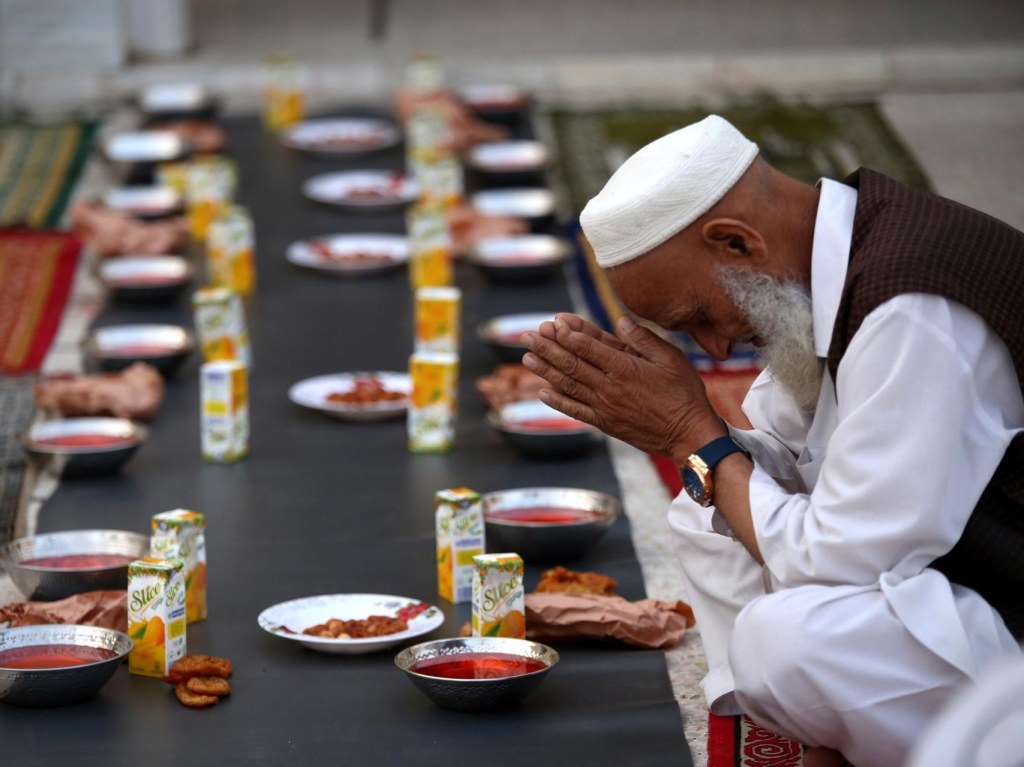Discover How Many Days Ramadan Lasts: Unveiling The Complete Duration Of ‘Cuantos Dias Dura El Ramadan’
Cuantos Dias Dura el Ramadan?
Introduction
Assalamualaikum, Ramadhan enthusiasts! Are you wondering how long does Ramadan last? This holy month holds great significance for Muslims around the world as they fast from dawn till dusk, engage in prayer and reflection, and seek spiritual growth. In this article, we will explore the duration of Ramadan, its importance, and how it is observed by Muslims globally.
The duration of Ramadan, also known as Ramazan, varies each year as it is based on the Islamic lunar calendar. This calendar follows the cycles of the moon, resulting in a difference in the number of days between the lunar calendar and the Gregorian calendar. To understand how long Ramadan lasts, let us delve into the details.
2 Picture Gallery: Discover How Many Days Ramadan Lasts: Unveiling The Complete Duration Of ‘Cuantos Dias Dura El Ramadan’


What is Ramadan?
🌙 Ramadan is the ninth month of the Islamic lunar calendar and is considered the holiest month for Muslims worldwide. It is a time of spiritual reflection, increased devotion, and worship. During this month, Muslims observe fasting from dawn to sunset, abstaining from food, drink, smoking, and other physical needs.
🕌 The fast is broken with a meal called iftar, which consists of dates and water followed by a wholesome meal. This practice is not only a means of physical purification but also a way to empathize with those less fortunate and develop self-discipline.
Who Observes Ramadan?

Image Source: statcdn.com
🧕🏽 Ramadan is observed by Muslims worldwide, spanning different cultures, languages, and ethnicities. It is a mandatory duty for all adult Muslims, except for those who are exempted due to specific reasons such as illness, pregnancy, breastfeeding, traveling, or menstruation.
🕌 It is a time when Muslims come together as a community to support and encourage one another in their spiritual journey. Mosques are filled with worshippers engaging in Taraweeh prayers, reciting the Quran, and seeking forgiveness from Allah.
When Does Ramadan Begin and End?
🌙 The beginning and end of Ramadan are determined by the sighting of the new moon. The duration of Ramadan can vary between 29 and 30 days. The exact dates of Ramadan depend on the sighting of the moon, which can differ from country to country.
🌍 The starting date of Ramadan changes each year in the Gregorian calendar, as it shifts approximately 10 or 11 days earlier annually due to the difference in the lunar and solar calendars. This variation adds diversity to the global Muslim community, with different regions celebrating Ramadan on different dates.
Where is Ramadan Celebrated?

Image Source: ondacero.es
🕌 Ramadan is celebrated worldwide by Muslims in every corner of the globe. It is observed in countries with a significant Muslim population, such as Indonesia, Egypt, Turkey, Pakistan, Saudi Arabia, and many more. However, Muslims living in minority communities or non-Muslim-majority countries also observe Ramadan with great devotion and enthusiasm.
🌍 The spirit of Ramadan can be felt in bustling markets, adorned mosques, and homes illuminated with festive lights. Muslims come together to break their fast, share meals, and engage in acts of charity and goodwill towards others.
Why is Ramadan Important?
🌙 Ramadan holds immense importance for Muslims as it is a month of reflection, self-discipline, and spiritual growth. It is believed to be the month in which the first verses of the Quran were revealed to the Prophet Muhammad (peace be upon him) by the Angel Gabriel.
🌍 It is a time when Muslims intensify their efforts to seek closeness to Allah, increase their acts of worship, and purify their souls. The fast during Ramadan serves as a means to develop self-control, empathy, and gratitude.
How is Ramadan Observed?
🌙 During Ramadan, Muslims engage in various acts of worship and spiritual practices. Apart from fasting, they offer extra prayers such as Taraweeh, recite the Quran, participate in charity and community service, and seek forgiveness from Allah.
🕌 Muslims also strive to improve their character, practice patience, refrain from gossip and harmful speech, and strengthen their relationships with family, friends, and the community. Ramadan is a time of self-reflection, seeking forgiveness, and striving for self-improvement.
Advantages and Disadvantages of Ramadan
Advantages:
1. Spiritual Growth: Ramadan provides an opportunity for Muslims to deepen their connection with Allah and engage in acts of worship to increase their spirituality.
2. Self-Discipline: Fasting helps develop self-control, patience, and empathy towards those less fortunate, fostering a sense of discipline.
3. Health Benefits: Fasting has been known to have positive effects on physical health, such as detoxification, weight loss, and improved metabolism.
4. Family Bonding: Ramadan brings families together during iftar and suhoor, strengthening family ties and creating cherished memories.
5. Increased Generosity: Muslims are encouraged to give to charity during Ramadan, promoting empathy, compassion, and support for those in need.
Disadvantages:
1. Physical Challenges: Fasting from sunrise to sunset can be physically demanding, especially during long summer days or in regions with extreme weather conditions.
2. Productivity Fluctuations: Some individuals may experience fluctuations in productivity due to changes in sleep patterns, energy levels, and meal timings.
3. Social Obligations: Attending social events during Ramadan may require additional planning and consideration to balance fasting and religious obligations.
4. Dietary Adjustments: Adapting to a new eating schedule and managing cravings can be challenging for some individuals during Ramadan.
5. Fatigue and Dehydration: Lack of proper rest and hydration can lead to fatigue and dehydration, requiring individuals to prioritize self-care during this month.
Frequently Asked Questions (FAQs)
Q: Can I fast if I am pregnant or breastfeeding?
A: Pregnant or breastfeeding women are exempted from fasting during Ramadan. However, they can choose to fast if they believe it will not harm their health or the health of their child. It is recommended to consult with a healthcare professional to make an informed decision.
Q: Are children required to fast during Ramadan?
A: Fasting is not obligatory for children before they reach puberty. However, many children begin to observe partial fasts or practice fasting for a few hours a day to prepare for when they become adults.
Q: Can I brush my teeth while fasting?
A: Yes, you can brush your teeth while fasting. However, it is important to avoid swallowing toothpaste or water to ensure that the fast remains valid.
Q: Is it permissible to take medication during fasting?
A: Taking essential medication is permitted during fasting. However, non-essential medications and injections that provide nutrition should be avoided during fasting hours.
Q: Can I travel during Ramadan?
A: Yes, you can travel during Ramadan. However, fasting individuals may choose to break their fast while traveling to make the journey more comfortable. They can then make up for the missed fasts at a later date.
Conclusion
In conclusion, Ramadan is a sacred and blessed month that holds great importance for Muslims worldwide. It is a time of self-reflection, self-discipline, and spiritual growth. Muslims fast from dawn till dusk, engage in acts of worship, and seek closeness to Allah. Ramadan brings families and communities together, fostering a sense of unity and compassion.
As Ramadhan enthusiasts, let us embrace the spirit of Ramadan and strive to make the most of this blessed month. May it be a time of reflection, gratitude, and increased acts of kindness for all. Ramadan Mubarak!
Final Remarks
Disclaimer: The information provided in this article is for general informational purposes only and should not be considered as professional advice. Please consult with a qualified religious scholar or healthcare professional for specific guidance related to Ramadan and fasting.
This post topic: Ramadhan


